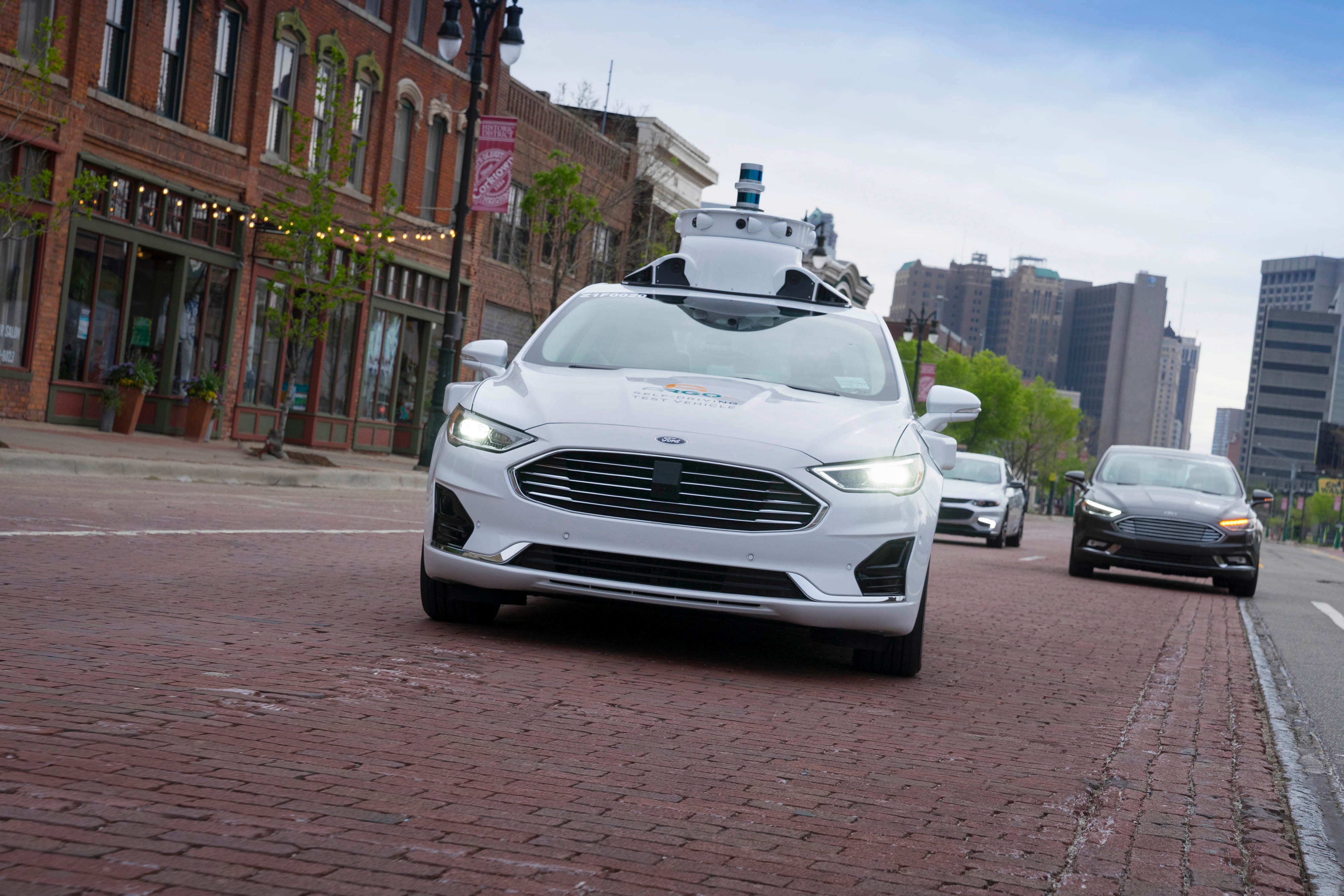Ford acquires two tech companies to accelerate development

Ford Motor Co. is acquiring two technology companies to boost the automaker's bets on autonomy and new transportation.
The acquisitions announced Tuesday include Journey Holding Corp., a company that makes tracking software and other app-based technology for the public transportation industry, and Saline-based robotics and simulation company Quantum Signal AI.
Ford acquired the companies for undisclosed amounts of money as it moves to speed up development of some of the systems that will support its autonomous vehicles, said Brett Wheatley, Ford vice president of mobility marketing and growth.
Tuesday's announcement comes two weeks after Ford and self-driving software partner Argo AI detailed a sweeping partnership with Volkswagen AG on electric and autonomous vehicles.
"We have the opportunity in some cases that are just going to accelerate our effort," Wheatley told The Detroit News. "We don't feel like we have to own all the different assets, but we want to be someone who can orchestrate the various transportation modes."
The Journey Holding acquisition nets Ford the two companies that make up Journey, Ride Systems and DoubleMap Inc. The companies under the Journey umbrella develop apps for nearly 1,200 clients including universities, municipalities or private companies to help the companies coordinate mass transit like shuttle services. Journey provides clients with a way to manage their fleets, and provides users with a smartphone app by which they can schedule, track and plan rides.
Journey Holding Corp. would combine its 200 employees with the roughly 200 TransLoc employees that currently work for Ford Smart Mobility. TransLoc has been working on the same thing Journey Holding does; the Journey acquisition gives Ford access to the 1,200 Journey clients. Journey Holding currently services Dan Gilbert's Bedrock Detroit, which uses shuttles to ferry employees from parking lots around the city of Detroit to their offices downtown.
Ford and Journey Holding CEO Justin Rees hope to develop an application that will give people access to Ford's various modes of transportation. Ford owns a electric scooter company, has a bike-share program, and hopes to deploy fleets of autonomous vehicles in cities by 2021. The automaker would develop its smartphone app with Journey to launch before those self-driving vehicles are on roads.
"We want to make the option that people consider first," Rees said. "If they can leave the car at home and they have a variety of solutions we can provide them, they will love that aspect of having so many options."
Rees and Wheatley envision customers reserving an electric scooter to get them from a drop-off location to the office while they sit on the shuttle that's taking them from their home or parking garage across the city, for example.
Meantime, the Quantum acquisition would support Ford's self-driving vehicle development and prototyping, according to a Tuesday blog post. The company would develop "more comprehensive simulation environments" in which Ford can test its vehicles.
Both acquisitions mark a further shift in collaborating or acquiring technology instead of developing every aspect of the future of transportation in-house. Ford CEO Jim Hackett has said no one company "can do this alone." The uncertain future of the auto industry will require plenty of partnerships and a changing automotive ecosystem. And some of those might not work out.
Ford has recently had to atone for misplaced bets on the future. The automaker last week wrote off almost the entirety of its $182 million bet on cloud computing company Pivotal Software after that company's stock tanked. It's also pulled the plug on a shuttle service, Chariot, it had acquired for $65 million in 2016.
Wheatley said Tuesday the new partnerships aim to amplify the steady work Ford teams are doing as the automaker readies to launch fleets of autonomous vehicles in 2021 that could be amplified by a wide Ford-backed network of transportation services in select cities.
"There's been some great learnings," Wheatley said. "The mobility space is moving so quickly. The Ford team is really very invigorated right now."
ithibodeau@detroitnews.com
Twitter: @Ian_Thibodeau